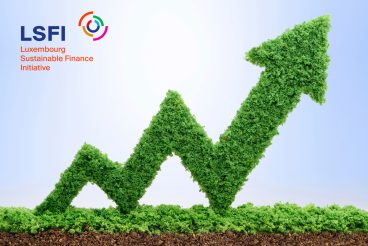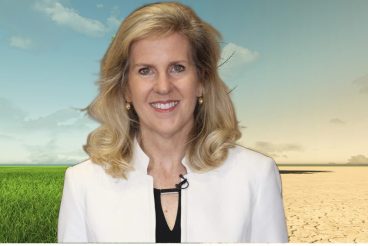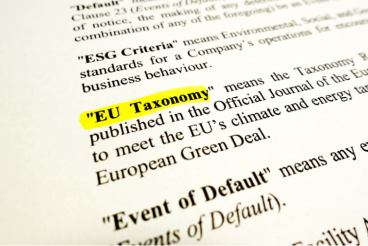In an interview with VitalBriefing, Stephan Peters, Managing Director of International Climate Finance Accelerator, discusses the key challenges and hurdles faced by fund managers who believe their investments should support the sustainability transition. Stephan shares his insights on a range of topics, including what climate fund managers need most to succeed, the impact of the EU’s taxonomy and SFDR legislation, and the growing role of data.

What is the ICFA and what are its goals? What are your criteria for choosing managers for the ICFA programme?
The International Climate Finance Accelerator is a unique two-year programme that accelerates emerging fund managers focusing on key areas within climate action. Our fund managers receive access to financial support, trainings on a wide range of topics, an experienced coach and other benefits.
Through our programme we aim to shape the future leaders in climate finance, to increase the number of climate finance investment funds and the assets invested, and to establish Luxembourg as the preferred choice for climate finance funds and fund managers. By successfully reaching these targets we can fulfil our mission: to contribute to a more sustainable world by fostering climate finance.
We look for first- or second-time fund managers in the process of creating a climate fund. The majority – at least 75% – of the funds in an eligible fund manager’s target portfolio must be in climate-change mitigation, climate-change adaptation, or in projects that reduce emissions from deforestation, forest degradation and foster sustainable forestry and agriculture. Furthermore, the applicants must have an investment strategy that will comply fully with our exclusion policy.
Following these eligibility checks, the potential candidates are then assessed on four main criteria groups that revolve around the team’s track record:
- Having a credible climate finance investment strategy
- Having means to generate positive impact
- Having capacity to successfully fundraise
- Having the ability to reach a first close
What are the key issues facing climate fund managers as they seek to build and scale up their business?

Fund managers face a variety hurdles when building, scaling and launching their funds. At ICFA Luxembourg, we believe the biggest challenges (which we address specifically with our programme) find themselves interlinked across the following themes:
- Shared investment track records
- Deep sectoral experience
- Fund management knowledge
- The necessary resources to build a fund.
Let me expand briefly:
Without attributable, relevant deals performed by the fund management team, fundraising is a steep hill to climb, as that experience acts as a proof source to fund investors, the majority of whom expect a long track record running the same investment strategy.
Fund management teams lacking that track record will need to fill those gaps by using managed deals through special purpose vehicles, deal warehousing by friendly fund investors, or even launching a sub-scale fund first. At the same time, the fund managers will also need to build and maintain an attractive pipeline, with advantaged access to those deals.
And even after taking all the steps I’ve just described, not only will many emerging fund managers then have to cover the fund set-up costs out of their own pockets, they’ll also have to bridge the time between designing the fund and actually securing first close — all while passing on other lucrative jobs and opportunities.
What are the most important types of assistance that can help them build their business?
Firstly: money. Emerging fund managers need financial support to cover the expenses related to structuring and launching their fund. They also require the economic support for logistics-related spending, such as travel, and for admin-related costs, such as talent acquisition and fundraising.
As the funds sector is always evolving, it is also critical for fund management teams to be provided with continuous knowledge-building/education opportunities. It’s why we dedicate part of our programme to helping fund managers deepen their knowledge on fund structuring and management, impact measurement and management, marketing and distribution, and regulations. These topics, for instance, are constantly changing, and it can be difficult for a small team to keep current of all the latest developments.
Then we come back to…you guessed it: money. This is different, however, from the initial investment I discussed above that helps launch a fund. I’m referring in this case to the fact that it is imperative for fund managers to be connected with investors.
Emerging fund managers struggle in particular with securing anchor investors and first-loss capital. Without an expansive fund track record, an emerging manager will struggle to find investors who would be open to running an institutional due diligence on – and have the capacity to commit a sizeable capital allocation to – her or him.

What impact is the EU’s taxonomy and SFDR legislation having on the evolution of specialist climate and biodiversity fund managers and their products?
The EU Taxonomy and SFDR enable investors to identify the extent to which an investment activity and a fund can be considered sustainable. While we applaud this much-needed transparency and the fact that funds are now held accountable for their sustainability disclosures, it also significantly heightens the ‘reporting burden.’
The problem with this increased obligation is that it creates more administrative and financial barriers that are difficult for emerging fund managers to overcome when launching their first or second fund. Consider that the minimum AUM that a fund needs to be financially viable has increased exponentially over the past decade. This factor further impairs the ability of emerging fund managers to experiment with innovative investment strategies that many climate funds could otherwise be categorized under.
In my view, policy makers should create a regulatory sandbox with reduced administrative burdens for small funds. Say, those with less than €500 million AUM. Not only will this boost innovation, it would also put the Luxembourg financial centre back on the map and make it equally, if not more, attractive in comparison to competitive financial centres.
How readily available is the data required by managers to demonstrate the climate or biodiversity impact of their investments?
Dealing with data can of course be complicated. It can be difficult for climate fund managers, especially those active in non-OECD countries, to collect the necessary data required for sustainability-related reporting and for guaranteeing data comparability.
But this isn’t simply down to fund managers not doing enough to collect quality data — the sector is also lacking in this regard. For instance, quantifying GHG emission reductions, which is arguably the most important KPI for climate change mitigation, is straightforward enough as there are many techniques available that have been rigorously tested and validated. In contrast, when it comes to climate change adaptation, the sector doesn’t have a standardised set of KPIs to report on.
Meanwhile, biodiversity fund managers face an even bigger challenge: very few scalable data collection techniques actually exist for measuring biodiversity. It should be noted, though, that the market is actively looking for innovative ways to gather this data, as it should be. It is of vital importance that biodiversity be objectively measured as it is a necessary input to effectively implement the critical step that comes next: valuing and pricing biodiversity as part of an investment proposition.
— — —
Stephan Peters is the Managing Director of the International Climate Finance Accelerator Luxembourg where he assists aspiring climate fund managers in structuring their vehicles, formulating investment strategies, guiding operational implementation, and securing financing. Previously, Stephan ran his own sustainable advisory and investment boutique SANZARU while advocating decision makers on impact investing, sustainability and diversity as part of TIIME.org. Before that, Stephan accumulated experience in private equity, corporate finance and strategy consulting across EMEA and Asia with blue-chip names like Oliver Wyman, Credit Suisse, and Delta Partners.





